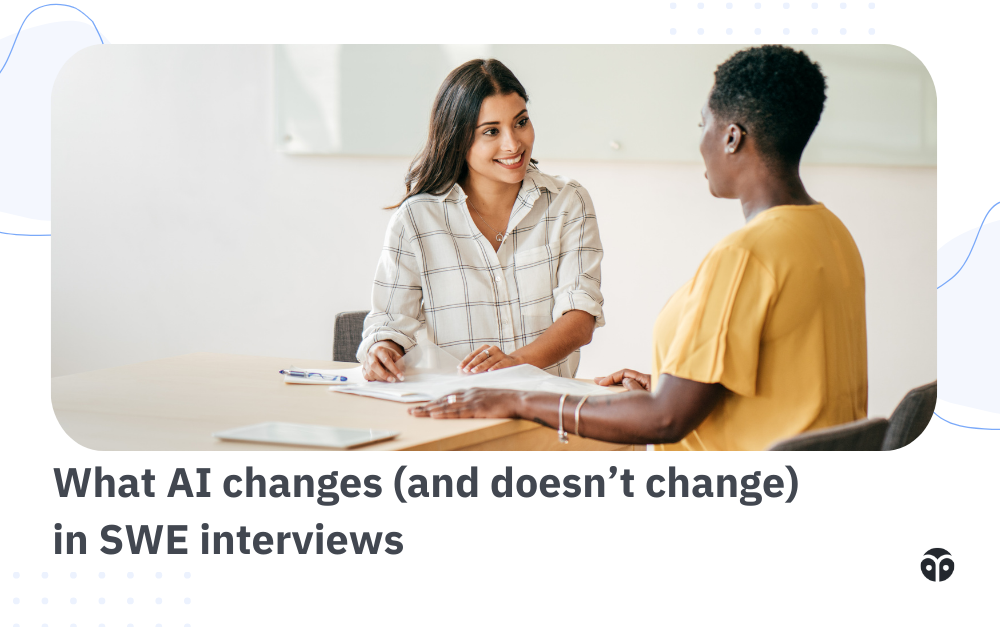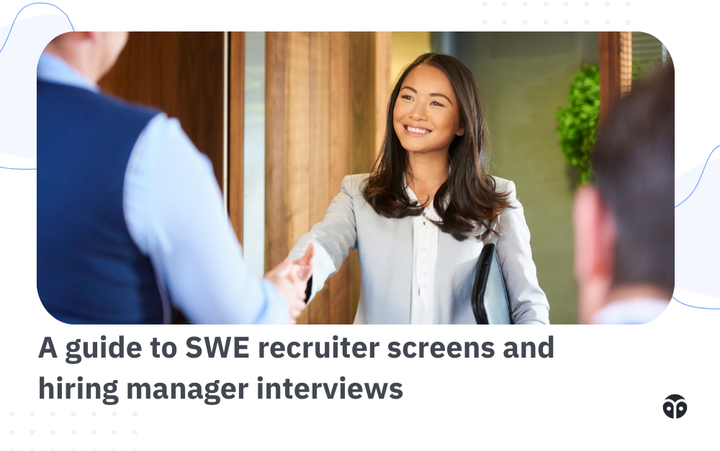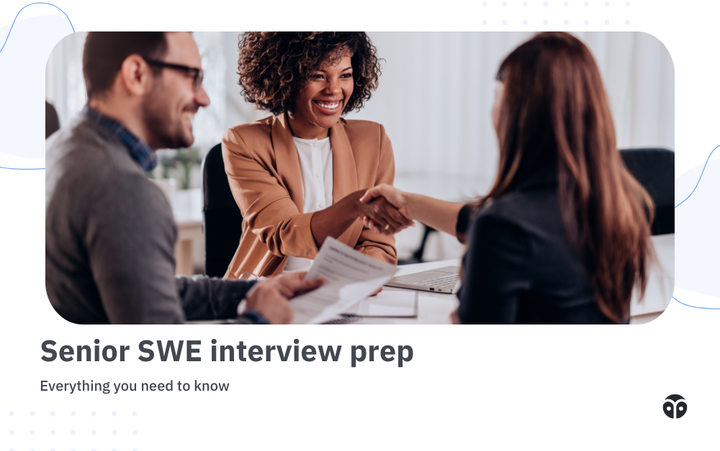What AI changes (and doesn't change) in SWE interviews
AI is raising the bar for software engineering interviews. Learn what’s changed, what hasn’t, and how to prep effectively in 2025.

By Daniel Tomko
AI is everywhere and hiring is increasingly competitive, so it’s no surprise that many engineers are asking if they should overhaul how they prep for interviews.
The pressure is real: companies are hiring fewer engineers, applicant pools are larger, and AI tools are reshaping how work gets done on the job. It can feel like the rules are changing under your feet.
But despite the noise, the fundamentals of what interviews test (and what teams actually need from senior engineers) haven’t gone away. If anything, the bar for demonstrating those fundamentals has gone up.
You still have to know how to code. You still have to understand how data is stored and manipulated. You still need to be good at solving problems, explaining your thinking, and communicating clearly. AI hasn’t replaced any of that.
If anything, it’s made those skills even more important.
What hasn’t changed
If you’re preparing for interviews right now, here’s what’s still true:
- You need to know how to write and read code.
- You need to understand data structures, algorithms, and how data is stored and manipulated.
- You need to be able to explain your thinking clearly and work through problems methodically.
These skills are what interviews probe for, and they’re what strong engineering work relies on. Companies might be more selective today, but they’re still looking for the same signals. You don’t need to reinvent your prep; you need to go deeper and get sharper.
What has changed
The interview format hasn’t changed much. The environment has.
1. AI is now part of the SWE daily workflow.
AI tools like Copilot and ChatGPT are widely used on the job. That’s changed what hiring managers care about and actually increased the level of skill you need to have. They need people with the depth of knowledge to read and interpret code and to make good architectural decisions.
2. Fewer roles mean more competition.
Companies are hiring fewer engineers. That means even if the interview questions are the same, it’s harder to get an offer. If a company used to hire 10 engineers and now they’re hiring two, the top two candidates are going to look a little different. The bar goes up even if the rubric doesn’t.
3. Some companies are testing AI-inclusive interviews.
A few are experimenting with letting candidates use tools like Copilot or ChatGPT in live interviews. But what they’re watching isn’t whether you get the right answer; it’s how you work with the tool.
So yes, things are changing. But not in a way that makes skills less important — in fact, it’s the opposite. The bar is higher.
Why AI doesn’t lower the bar, it raises it
Programming is a “learn by writing” discipline — most of us start by trying things, breaking things, and slowly building intuition. Reading code is actually really hard. It's hard to infer meaning. You can see what the code does, but figuring out why it does it takes experience.
So what happens when more of the code is being written by AI? It means your job becomes evaluating that code. Is it doing what you want? Is it solving the problem the right way? Can you reason about it and debug it, and adjust it? That requires even deeper skill. You have to be really good at understanding what’s going on, not just writing code from scratch.
In some ways, this shift mirrors what already happens on teams. Senior engineers often spend more time reviewing code than writing it. And now, with AI writing more of the code, that senior-level skill becomes even more important across the board.
That’s what interviews are increasingly testing.
A few companies are starting to include AI in interviews, but don’t overthink it
Some companies are experimenting with allowing AI during the interview. That might mean you can have ChatGPT open during part of the process, or use a tool like Copilot or Cody while solving a problem.
Interviewers care more about the process than the final code. Watching how someone works is where most of the signal is. So if someone uses AI in a thoughtful, precise way, that tells the interviewer a lot about how clearly they think and how well they understand both the problem and the solution.
That’s the skill that matters. Can you explain your thinking? Can you talk through your approach? Can you communicate clearly enough to get your point across to me, to your teammates, to an AI tool? If the answer is no, that’s a problem.
Clear communication, whether to a person or an AI, is a big differentiator.
What this means for your interview prep
If you’re prepping for a FAANG interview or trying to break into any top team, it’s natural to feel overwhelmed. There’s a lot of noise. The market is tight. And the role of AI is still evolving.
But you’re not powerless.
Here’s what to focus on:
- Go deeper on your fundamentals.
- Practice thinking through problems in plain English.
- Get better at reading code, not just writing it.
- Use AI tools, but don’t let them think for you.
- Communicate your ideas clearly.
There are no shortcuts here. Even when the market softens, these skills are still going to matter. If anything, they’ll matter more. As teams figure out how to integrate AI into their workflows, we’re going to need strong engineers who can think critically, reason through systems, and communicate clearly.
AI makes good engineers faster. It makes great engineers unstoppable.
Get holistic interview prep with Formation
The Formation Fellowship gives mid-level and senior engineering job seekers everything they need to land their dream roles — including personalized skill brush-ups, resume help, unlimited mock interviews with experienced software engineers and hiring managers from top-tier tech companies, career and negotiation support, and more.
If you’re having trouble navigating your job search on your own, apply here and get unconditional support from a team of engineering mentors, technical recruiters, career coaches, and more.



